Learning through play theory
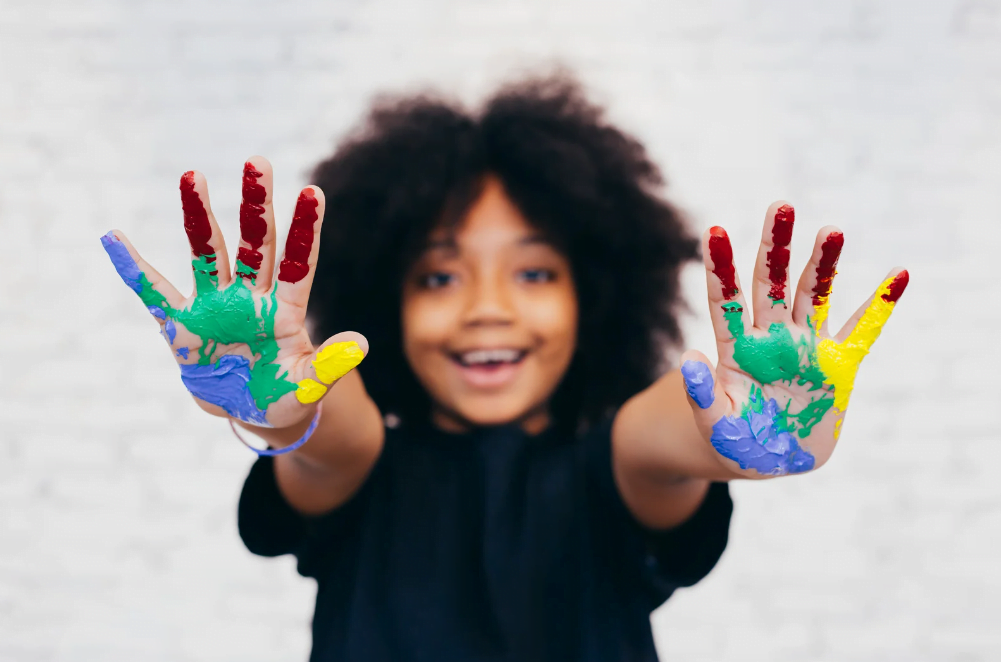
It is easy as adults to forget the importance of play. However, the truth is that little ones engage in play not just for fun, but to learn and develop essential knowledge and skills that are crucial for their early years and future lives.
In this article, we will delve into the meaning of play, research findings, and the benefits it offers for social skills, physical development, and emotional regulation. We'll provide ideas and inspiration on how to facilitate learning through play with your little ones. Read on to discover the importance of play in child development.
Defining Play in Child Development
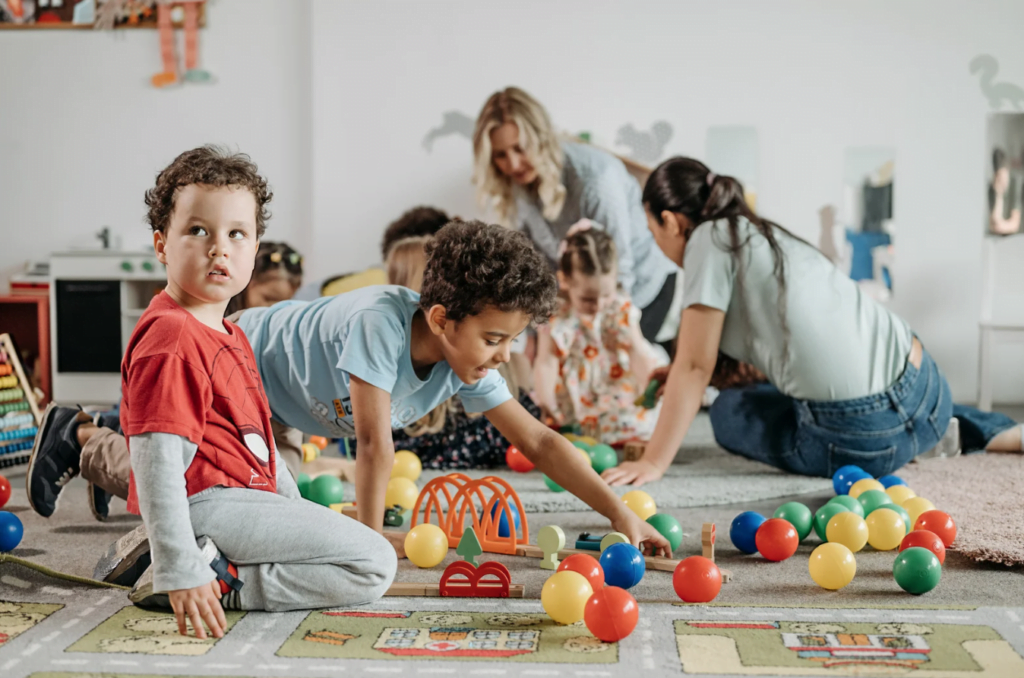
Play is generally thought to be:
Self-directed and motivatedPlay is done purely for its own sake, driven by a child's desire and needs. There are no external rewards or motivations involved.
Meaningful: Despite appearances, play is highly meaningful. It allows little ones to develop a sense of the world around them, make connections, and understand their experiences.
Joyous: Playful activities generally bring pleasure and excitement to children. It is often accompanied by peals of laughter and happiness.
All-encompassing: When playing a child is usually fully immersed in the activity - physically, mentally, and verbally.
The 7 Types of Play in Early Years

Play evolves as a child develops. Young kids often engage in parallel play, later developing associative and then social play. They also move from
Parallel play
During parallel play young children play alongside each other without direct interaction. This type of activity allows children to focus on their own activities and build their attention span. During parallel play, children may have their own toys and engage in independent play while observing and being aware of the presence of other children. It is also common for this stage to include onlooker play, where children learn and enjoy watching the actions of their peers who are engaged in play.
Associative play
Associative play is common in preschool children, and involves play that is interactive without a strict structure or specific shared goal. Kids may share a toy, observe others, and communicate briefly.
You might see associative play with a group of kids gathering around an art table independently creating their own artwork. They may occasionally share and comment on each other's creations. Although interaction occurs, they don't actively collaborate towards a shared goal. Associative play fosters early relationships, social understanding, creativity, imagination, and language development.
Social play
Social play tends to develop as a child matures, and begins to engage in interacting and work together with other children. As a child matures they will usually begin to actively interacting, and participating in cooperative play and activities as well as competitive play.
This type of cooperative play promotes the development of social skills, collaboration, language develop and the building of friendships as children engage with one another. Older siblings can also be an important source of social play, modelling and help younger siblings learn co-operation and social skills, as well as develop language.
Physical play
Physical play entails children engaging and developing active physical skills, such as running, jumping, climbing. This type of play promotes physical development, coordination, and the growth of core muscle development as children move and exert energy through play. Things like ball games and playing tag are simple tools to encourage physical play which you can do anywhere.
Constructive play
Constructive play can mean anything from building blocks, to play dough. You can expand constructive play by introducing consequences, such as knocking over or using push toys to travel down a ramp. This type of play enhances problem-solving skills, creativity, and spatial awareness as children manipulate and arrange objects to construct their desired outcomes.
Fantasy and Expressive play
From round 3-4 years many little ones will begin create their very own pretend worlds, scenarios, and stories. Fantasy play may involve role play, magical ideas, and perspectives as they immerse themselves in their imaginary play experiences. When a child engages in imaginative play, like playing house, dress up or engaging in pretend scenarios, they exercise their creativity.
Fantasy play can simulate real-life situations and interactions, allowing them to navigate social dynamics and understand different roles and perspectives. Fantasy can also involve symbolic play, where children act out emotions or experience they are processing inside. Symbolic play is important for emotional development in young children, especially if a child has experienced stress or trauma.
Expressive play can encompass other activities such as art, musical instruments, dance, or dramatic play, where children use these mediums to express themselves and their emotions. This type of play encourage creativity, communication, and emotional regulation.
Games with rules
From around the age of 4.5 years children begin to participate in structured games with rules and guidelines. Games with rules can involve focus and concentration, like board games, or be active, like a simple game of tag. Competitive play helps children to develop cooperative skills, understand and follow rules, develop strategic thinking, and practice fair play.
Research Findings on Learning Through Play
Piaget
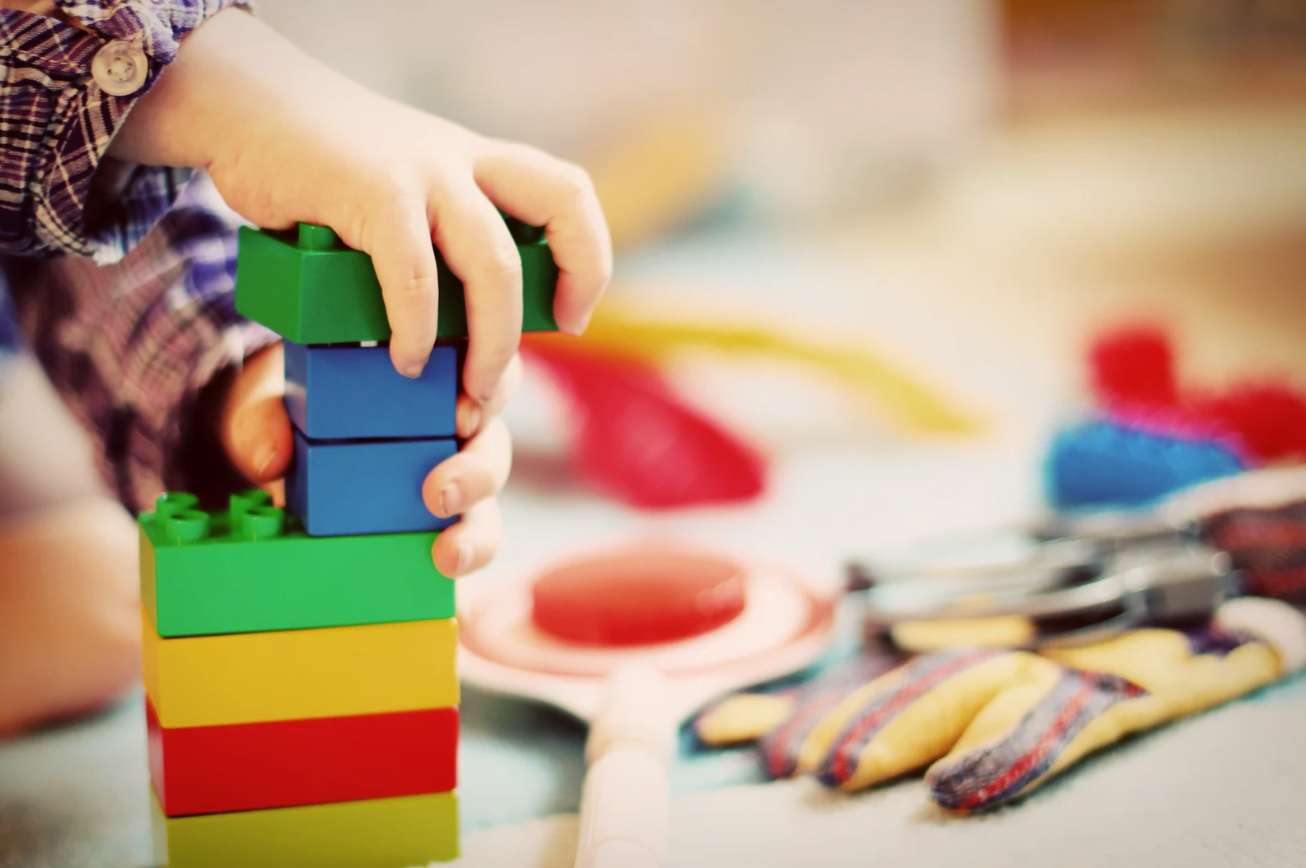
Jean Piaget was a developmental psychologist who conducted extensive studies on children's cognitive development, emphasising the significant role of play in intellectual growth. According to Piaget, play serves as a vital avenue through which kids learn, assimilate new experiences, enhance thinking skills, develop social abilities, and actively construct their understanding of the world.
Piaget's research suggests that play evolves as a child grows and the progressing through different stages. In the first stage in early childhood, known as sensorimotor play (typically from birth to age 2), infants explore the world through their senses and motor actions, grasping objects, and developing basic coordination skills. As they grow older, they engage in more complex activities, such as constructive play, where they use objects to build and create, fostering problem-solving skills and spatial awareness.
According to Piaget's work it is crucial to provide age appropriate activities for little ones at different stages of development. Younger children may benefit from simpler play activities that stimulate their senses and motor skills, while older kids can engage in more intricate and intellectually challenging play scenarios. Different types of play are helpful only once a child has reached a certain stage of development.
Vygotsky

Lev Vygotsky was a famous psychologist who examined the impact of pretend and make-believe play in a child's development thinking, emotions, and social skills. His research in the early 20th century showed how imaginary play helps children learn.
When children play pretend, they use their imagination to assign meanings and roles to objects or situations. For example, playing "house" or "doctor" with stuffed animals lets them act like adults and learn about social rules and communication.
Vygotsky said children learn from interactions with others who know more than them, like parents or peers. Play allows these interactions to happen naturally. Doing this they can learnt to ask for help or play together, share ideas and make decisions. This helps them think and learn better.
Froebel
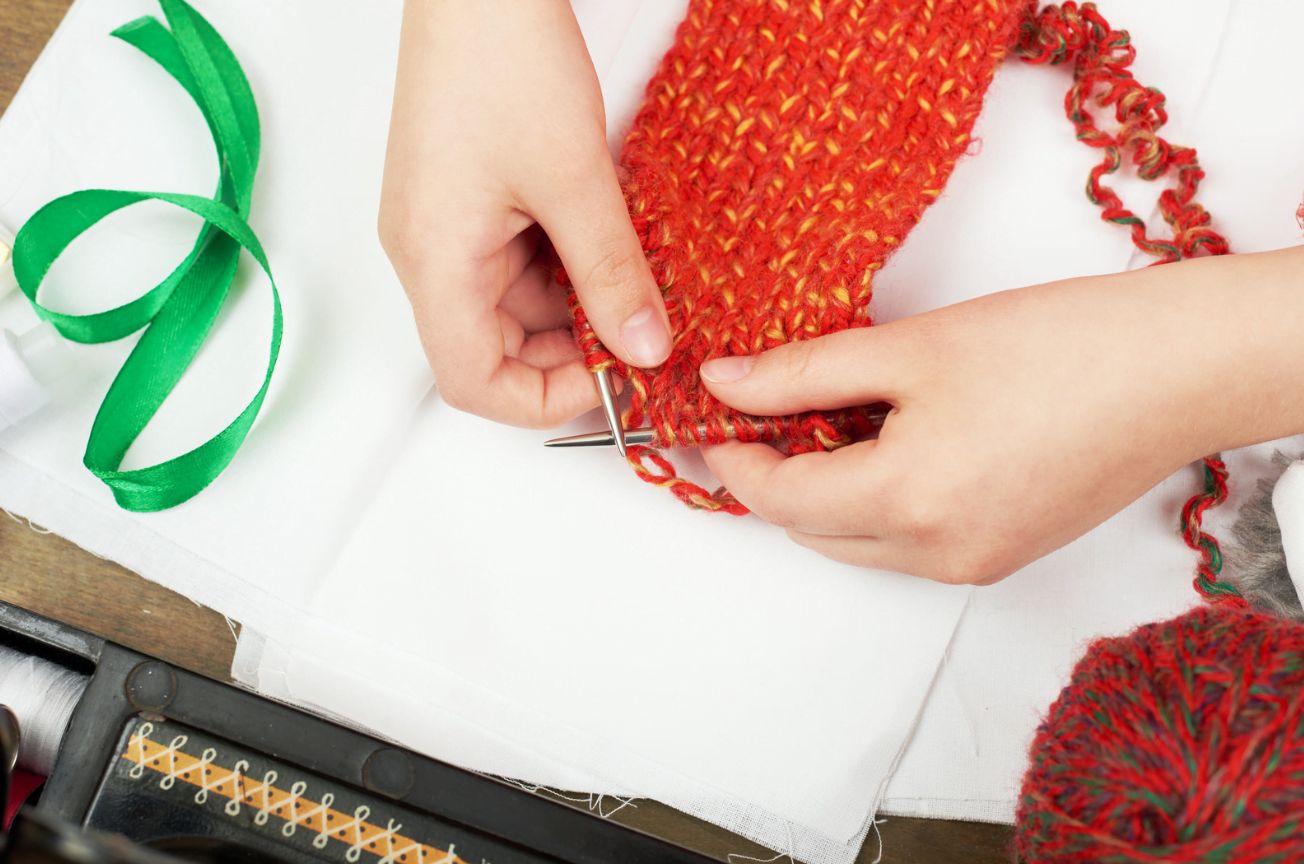
Friedrich Froebel founded the kindergarten movement, which highlights play was as key for children to explore and understand the world. He introduced "gifts" and "occupations" as educational materials to foster creativity and problem-solving skills.
Froebel's "gifts" were play materials like the Froebel Blocks, encouraging hands-on exploration and imagination. Children could experiment and develop motor skills while constructing with the blocks.
"Occupations" included activities like drawing, painting, and weaving, nurturing creativity and practical skills. These experiences allowed children to express emotions, refine sensory perception, and communicate visually.
Froebel valued individualised learning, letting children set their own pace. His child-centered approach promoted active knowledge construction and a love for learning.
Today, Froebel's influence can be seen in play-based learning approaches. Preschools and kindergartens create engaging environments where children engage in imaginative play, explore materials, and collaborate. Through play, children develop critical thinking, creativity, social-emotional skills, and a deeper understanding of the world.
Montessori
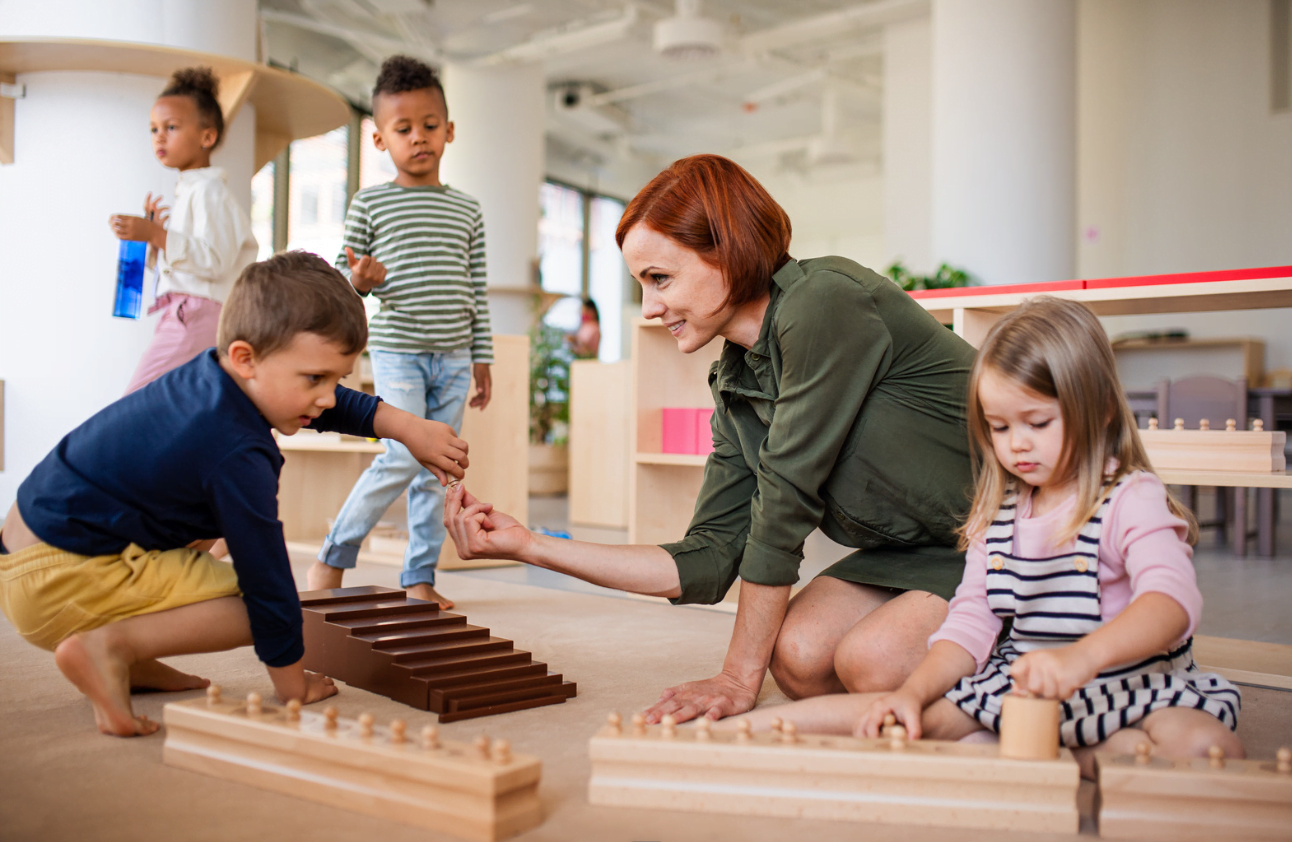
Maria Montessori developed teaching methods that emphasised the power of play to foster independence, concentration, and practical skills. Her approach involves a carefully designed environment with self-correcting materials for purposeful play and self-directed learning.
In Montessori classrooms, children use selected materials for hands-on exploration and active learning. Practical Life activities like pouring water and using tongs refine motor skills, coordination, and concentration while teaching life skills.
Sensory experiences are essential in Montessori education. Materials engaging multiple senses immerse children in learning. The Sensorial area includes the Pink Tower, where arranging cubes develops visual discrimination and spatial awareness.
Montessori highlights children's drive to explore and learn independently. The prepared environment promotes autonomy, choice, and self-directed learning based on interests and needs.
Montessori materials are self-correcting, providing immediate feedback. This fosters independence, confidence, and perseverance as children recognise and correct mistakes.
Play in the Montessori method develops cognitive, social, and emotional skills. Freedom to choose and work independently builds self-confidence and responsibility. Multi-age classrooms encourage cooperation, empathy, communication, and respect.
To learn more about Montessori, you can explore the following resources:
Isaacs

Child psychologist Susan Isaacs explored how play helps children express emotions, handle conflict, and develop social skills. Play is a safe space for kids to freely express their feelings and understand others'. For example, pretending to be a doctor lets them express fears and better understand medical experiences.
Isaac designed games that require negotiation and cooperation, helping children learn how to communicate and understand others' perspectives.
Isaacs noted that play helps children regulate emotions and control their reactions. By playing, they can practice managing frustration, disappointment, and expressing emotions appropriately. Isaac also developed the idea of sensory play - such as with clay, kinetic sand and play dough - as a way of soothing, providing an outlet for tension and emotional regulation.
The Benefits of Learning Through Play
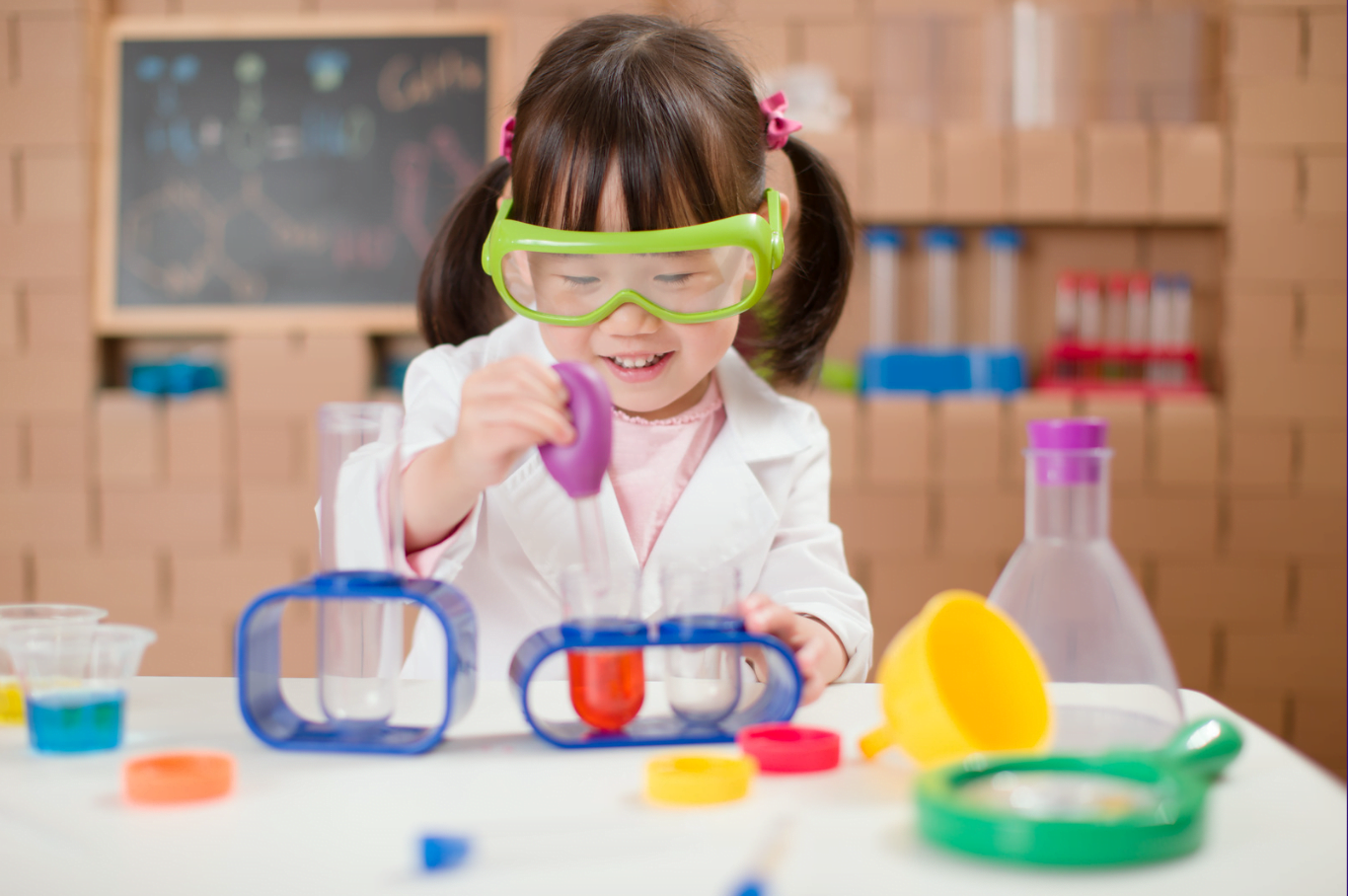
Engaging in play-based learning experiences offers numerous benefits for a child's holistic development. Here are some key advantages:
Physical and cognitive development
Play stimulates children's cognitive abilities creativity, and imagination. Active physical play promotes physical fitness, coordination, balance, and motor skills. It helps children develop strength, agility, and spatial awareness through activities such as running, climbing, and playing sports.
Social and emotional development
Play provides opportunities for little ones to interact with others, negotiate roles, and develop social skills such as cooperation, communication, and empathy. It also allows them to express and regulate their emotions, enhancing their emotional intelligence.
Language and communication
Play encourages the use of language in meaningful contexts. Children engage in conversations, storytelling, and role-playing, expanding their vocabulary, linguistic abilities, and communication skills.
Creativity and imagination
Play fosters imagination, creativity, and divergent thinking. It allows kids to explore different possibilities, experiment with ideas, and develop flexible thinking. Creative play with crafts are great fun, you can find inspiration for home made crafts here.
Problem-solving and decision-making
Play presents children with challenges and opportunities to make choices, solve problems, and think critically. It enhances their ability to strategise, plan, and make decisions in a safe and supportive environment.
Self-esteem and confidence
Play promotes a sense of competence and mastery as children engage in activities they enjoy and succeed in. It boosts their self-esteem, confidence, and belief in their abilities.
Practical Tips to Facilitate Learning Through Play
Here are some practical ideas for different types of play that parents and caregivers can use to facilitate learning through play:
Provide a variety of play materials
Offer a range of open-ended materials such as blocks, art supplies, puzzles, and nature items. These materials can be used in different ways, allowing children to explore and create based on their interests and ideas.
Encourage pretend play
Create opportunities for imaginative play by providing dress-up clothes, props, and playsets. Join in their play, take on roles, and engage in storytelling together. Dolls, mini figures and stuffed animals can be a great source of inspiration for little imaginations.
Foster outdoor play
Outdoor environments offer diverse sensory experiences and opportunities for physical activity. Encourage outdoor play, whether it's exploring nature, playing in the park, or engaging in active games. As long as it's safe try to encouraging children to feel confident to engage in solitary play - children learn about their internal boundaries and can develop both fine motor skills and strength.
Support social play
It can he hard to make extra time in the week to arrange playdates or join playgroups to provide opportunities for children to interact with peers. But these sorts of activities are a great way to facilitate cooperative play by encouraging sharing, turn-taking, and cooperation. Young children playing together may need support and mediation to avoid conflict in social settings.
Emphasise play-based learning activities
Incorporate play into learning activities by using educational games, hands-on experiments, and playful approaches to academic subjects. Make learning fun and engaging. Here are some specific examples and to inspire you:
Educational Games
Introduce educational games that align with your child's academic subjects. For instance, for math, you can use online math games or board games that involve logical thinking. Websites and apps like Mathletics or Prodigy offer interactive math games tailored to different age groups. Set aside dedicated game time where you can play together or encourage your child to explore these games independently.
Hands-On Experiments
Engage in hands-on experiments to make subjects like science come alive. Look for simple experiments online or in educational books that use household items. For example, create a homemade volcano using baking soda and vinegar, or explore the properties of water through sink-or-float experiments. Guide your child through each step, explaining the scientific concepts behind the experiment.
Playful Approaches to Academic Subjects
Infuse playfulness into academic subjects to make learning more engaging. For language arts, organise interactive storytelling sessions where you and your child take turns creating a story. Use props, costumes, or puppets to make it more immersive. When teaching vocabulary, create word puzzles or scavenger hunts where your child has to find and match words around the house or during a walk.
Rewards and Challenges
Introduce rewards and challenges to motivate your child's learning journey. Create a point system where your child earns points for completing tasks or reaching specific goals. Set up rewards such as extra playtime, choosing a special activity, or even small treats. Make sure the challenges are age-appropriate and encourage your child to take ownership of their learning progress.
Field Trips and Outdoor Exploration
Take learning outside the traditional classroom by organizing educational field trips and outdoor exploration. Visit museums, zoos, botanical gardens, or historical sites where your child can engage with the subject matter in a hands-on and interactive way. Plan nature walks to explore the environment, identify plants and animals, or collect samples for further investigation.
Follow the child's interests
Pay attention to the child's interests and provide materials and activities that align with their passions. This encourages active engagement and motivation in play-based learning experiences.
Offer unstructured playtime
Children play naturally and simply for their own joy - allow time for unstructured play where growing minds can freely explore and initiate their own play ideas. Avoid over scheduling, especially for young children, and provide opportunities for independent, self-directed play. Unoccupied play that isn't linked to specific learning tasks allow you to explore and understand your unique child's interest.
Take Homes
Play is not just a source of entertainment for children; it serves as a means for them to acquire essential knowledge and skills. From social interaction to physical development and emotional regulation, play encompasses various dimensions that contribute to holistic growth.


